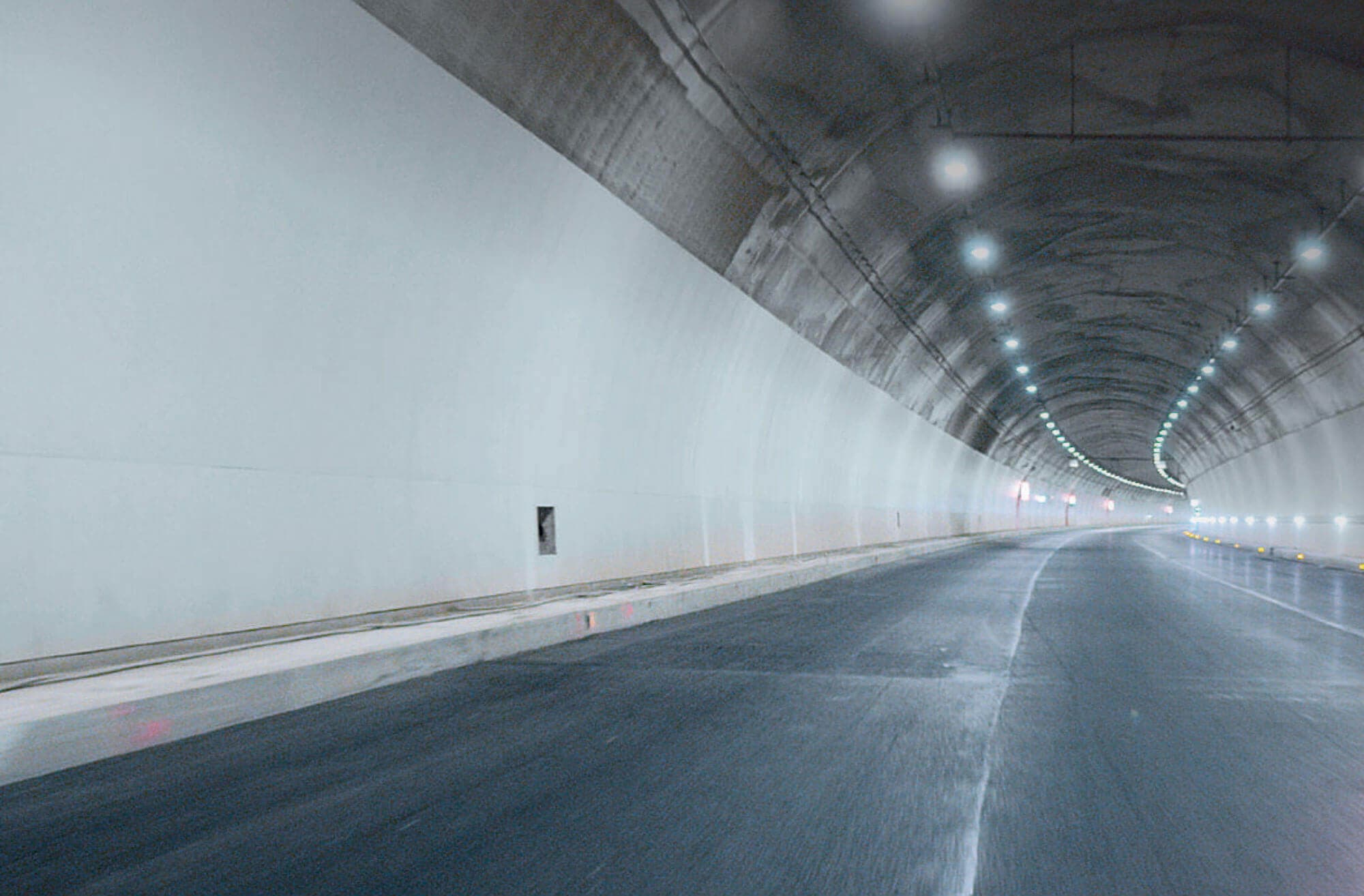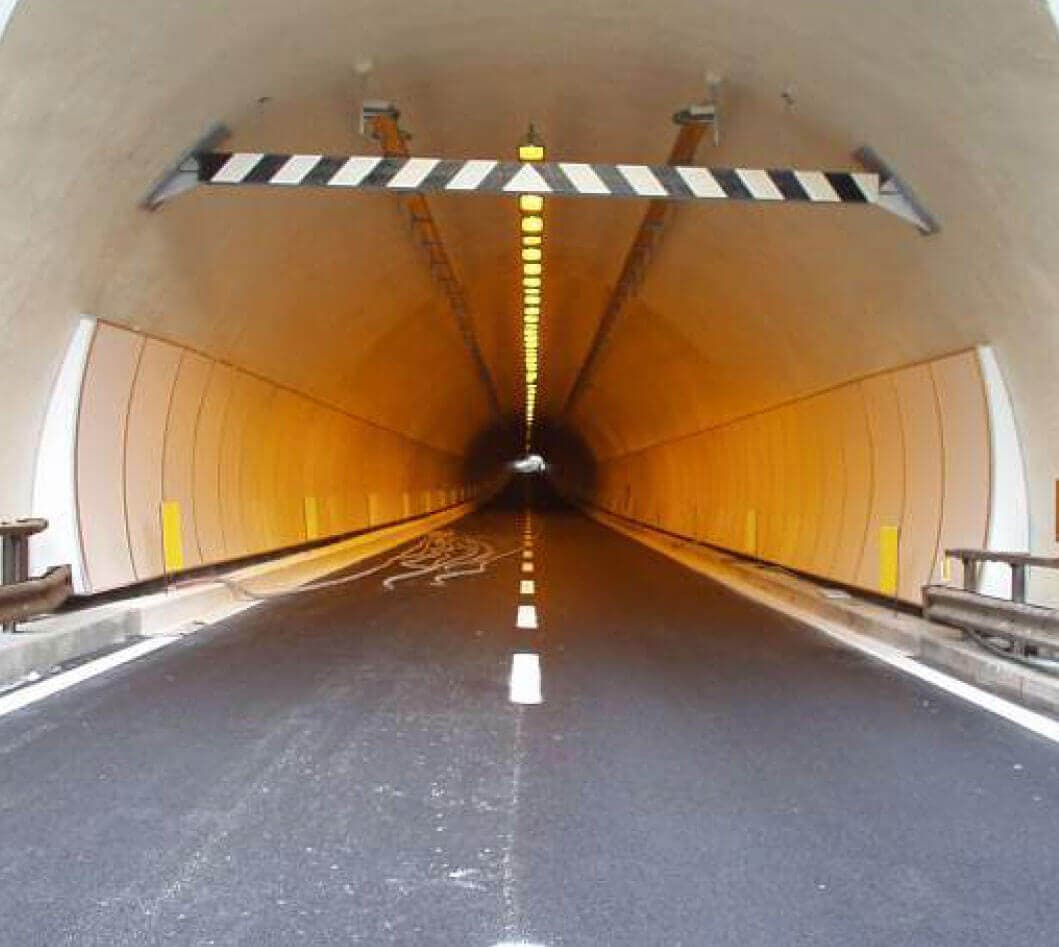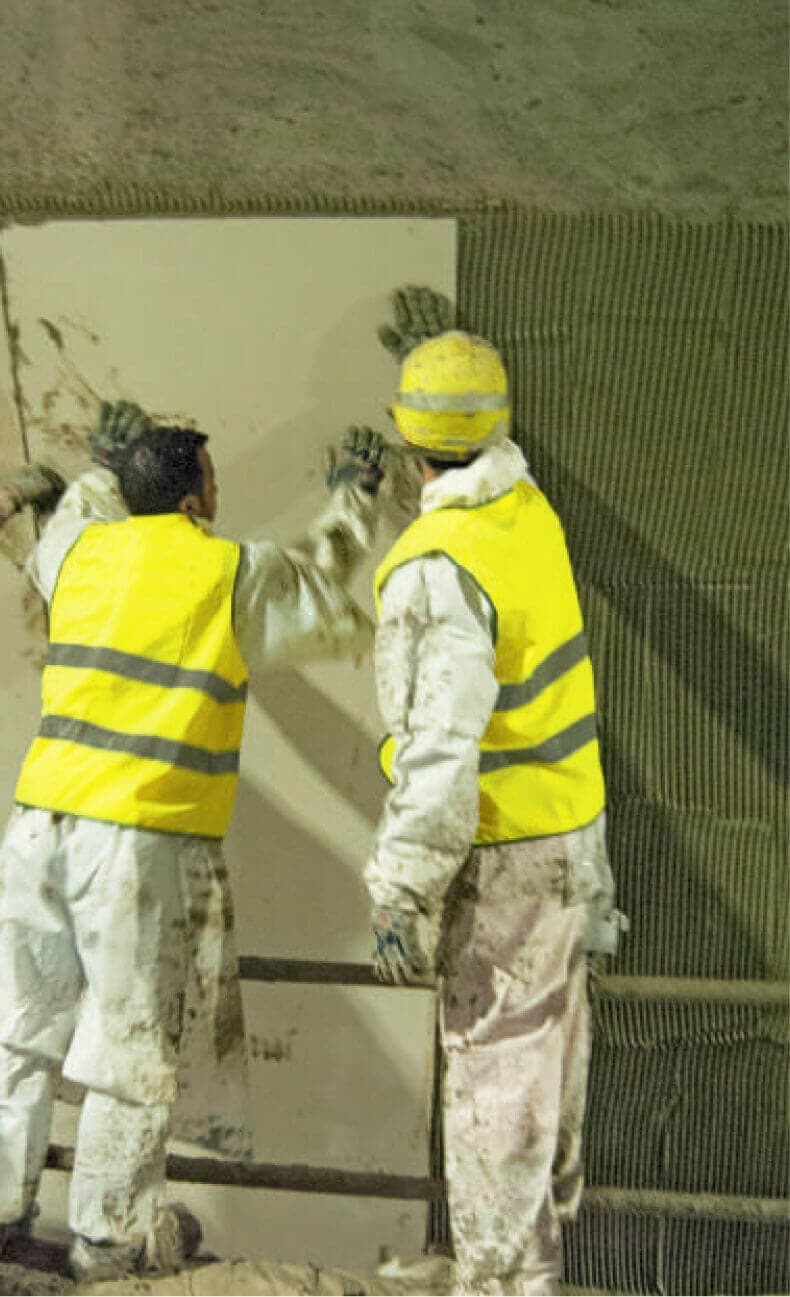Applications

Advantages

- Low maintenance: crack-, chip-, stain-, and water-resistance
- Fire resistant and will not contribute to flame spread
- Easy to clean
- Reflective options to create better lighting conditions
- Design options for branding and way-finding signage
ROOM TYPE
All aboard the tile train! Ceramic tile provides tunnels with unparalleled strength and durability.
Tunnel walls for train lines and roadways must withstand decades of use, fuel exhaust, debris from passing cars and trains, inclement weather, and natural disasters. These high-traffic areas require unique engineering and construction considerations to maintain structural integrity and worry-free passage. Ceramic tile is an advantageous material in road and railway tunnels to provide the tunnel walls with a durable surface layer that is easy to maintain and adds additional protective qualities.
Ceramic tile is made to withstand anything thrown its way, as it is resistant to cracking, chipping, staining, and denting.
In an area filled with exhaust, soot, dirt, and subject to additional soiling from weather and even graffiti, it is important to choose a material that is low maintenance and easy to clean. Dirt and debris sit on top of nonporous ceramic tile surfaces rather than becoming trapped in other materials, such as porous concrete. The lack of imbedded grime means tunnels can be easily cleaned in these transportation areas (typically by using a brush or pressure washer).
There are various tile installation methods available for tunnels. While tunnels are often designed using small tiles that can be installed to match the arch of the tunnel, there are gauged porcelain tile panels/slabs that can adapt to the curvature of the tunnel wall.
Tunnels may be surrounded by sea water, constructed underground, or may be subject to harsh weather conditions. This exposure to moisture can make porous materials vulnerable to damage. Moisture can seep into the outside walls of a tunnel causing damage and leaking inside the tunnel. Ceramic tile on the interior surface of a tunnel can be part of a waterproof installation system to help keep water from making its way through the walls and inside of the tunnel. Ceramic tile is also flame resistant, so in the event of a fire or emergency that produces heat, ceramic tile will not burn, contribute to flame spread, or emit toxic fumes.
Driver visibility within roadway tunnels is an added concern. There are many color options and surface finishes for ceramic tile that create a highly reflective surface. This surface allows vehicle or train lights to reflect off the tile and illuminate the inside of the tunnel, which enhances lighting systems and improves visibility.
Ceramic tile can transform the aesthetics of a tunnel to create artwork, designs, and branding without the need of additional materials or installations. Tunnels often require way-finding signage that point to proper entrances and exits, emergency or escape routes, and location identification, which helps facilitate a safer environment.
Simple or complex, designs for tunnels can be executed in ceramic tile that contribute to cleaner, durable, and more efficient transportations systems.

Download #OutsideTheBox: Your Tile Buying Guide…and get started now!

